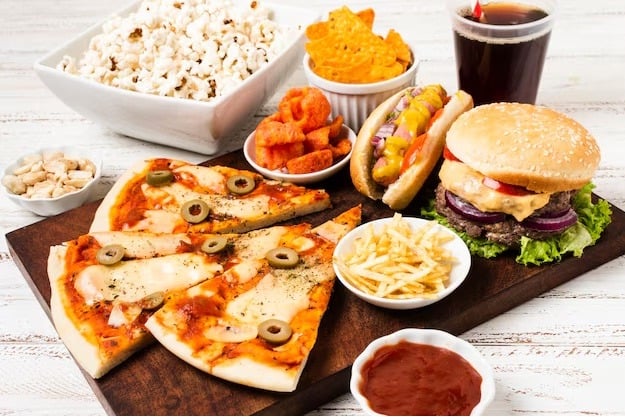Regular junk food consumption and inactive lifestyles are fuelling cases of painful piles, fistula and fissures in young adults aged between 18 and 25 years, said doctors on Monday.
People with piles and fissures — common disorders concerning the anal region — suffer from symptoms like passing bloody stools or having trouble passing stools, itchy and irritable anal cavity, inflammation, rectal bleeding, and discomfort when sitting for a long time, among others.
A fistula is an unusual opening near the anus that connects to the inside of the anal canal in the colon. It typically arises due to factors like injury, surgery, infection, or inflammation of anal glands. Pain, swelling in the anal area, boils, skin irritation around the anus, bleeding, and discomfort during bowel movements are the major symptoms.
“‘Haemorrhoids or piles happen when veins inside and outside the anus become swollen and enlarged. This condition is now seen in adults between 25-55 due to obesity, pregnancy, a diet low in fibre, constipation, diarrhoea, lifting heavy objects, and straining during bowel movements,” Lakin Vira, General Surgeon, Apollo Spectra Mumbai, told IANS.
“An anal fissure is a result of a tear in the lining of the anus or anal canal. This problem occurs because of constipation, straining during bowel movements, and ulcerative colitis,” he added.
Lakin said that in the past 2-3 months, approximately 50 patients have visited with complaints of piles and fistula, and for fissures, the number is higher than 80. About 60 per cent of males while 40 per cent of females suffer from fistula and piles. Whereas, 70 per cent of females and 30 per cent of males tend to have fissures.
“There is overall over 10 per cent in these conditions when compared to previous years. The incidence of these conditions is recently seen in age groups of 18-25 due to junk food consumption,” the doctor noted.
Hemant Patel, Laparoscopic and General Surgeon, Zynova Shalby Hospital told IANS that “cases of piles, fistula and fissures are increasing in younger age groups mostly in males. There has been a significant rise in these patients in the past few years”.
He noted seeing 5-6 patients with such conditions daily.
According to health experts, eating a balanced diet, exercising daily, preventing constipation by incorporating fibre-rich foods into meals, maintaining proper hydration by drinking sufficient water, quitting smoking and alcohol consumption, and avoiding straining during bowel movements can help ease the condition.
Other ways to manage the condition include “medications, creams, and a sitz bath. If the conditions get severe then one will have to undergo a minimally invasive laparoscopic surgery,” Lakin said.



